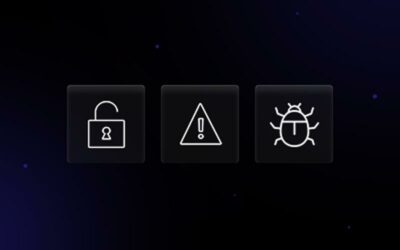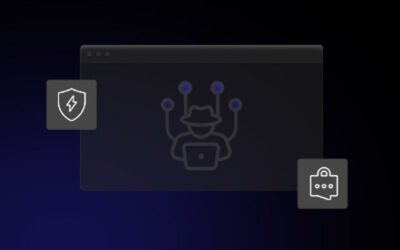With the second wave of the COVID-19 pandemic washing over the world, the scene seems like something out of a post-apocalyptic film: face masks everywhere, lockdowns reinforced, and people using any and all means to keep their distance from each other, including being confined in the safety of their own home.
More and more businesses are leaning towards remote work. Some have even embraced it fully: Teams working out the specifics of zoom calls and brands adjusting their entire strategy and approach towards their niche, the marketing metrics they track, and the very core of their business, in some cases, to manage to stay afloat under these new circumstances.
This new reality comes with a set of challenges that go beyond merely adjusting to it. Since we’re all spending more time indoors and online due to lockdowns and safety concerns, it is easier to forget how to stay safe online.
So, how are you going to stay safe online during the COVID-19 pandemic?
STAY AWAY FROM SCAMS
Phishing scams thrive in a climate of fear and panic, which is exactly what can be cultivated during a pandemic.
According to Google, the number of phishing websites went from 149,195 in January 2020 to 522,495 in March – an increase of 350%:
(Source)
Phishing scams are not to be taken lightly, especially since they can turn out to be very costly for those that have been scammed.
Be aware of the emails you receive, especially those that look like cold emails asking you to give up information or follow a link.
Most of these phishing scam emails look pretty legitimate and realistic. For example, I have received some transactional emails asking me to “track the delivery of my order”. That would’ve been fine had it not been for my business email and for the fact that I hadn’t made a purchase to begin with.
However, not everyone is as lucky, especially since most people order goods online due to COVID-19.
Therefore, an excellent place to start would be extreme caution regarding links and personal information. Always check the sender and always be vigilant of any details that could give away a potential scam. One of the most common examples would be replacing zeros with the letter o and vice-versa.
If you’re unsure whether an email is legitimate or not, you can always contact the sender and find out. At Techvera, we use a program called IRONSCALES in-house and for our clients. If you suspect an email may be a scam or phishing attempt, you can just click a button to send it to the IT support team to review. We highly recommend a service like this for every business, especially in the current climate.
ALWAYS CHECK FOR ONLINE FRAUDS (BANKING, MEMBERSHIP SITES, ETC)
Whether you’re the CFO of your company or you’re merely interested in keeping your personal online banking data safe, you need to be aware of how to avoid a breach of your online banking data.
When you’re trying to log in to your bank’s online platform, always make sure you can see an https:// and not an https:// at the left of the URL and a little lock next to it.
This will ensure that there’s an extra “layer” of security, in this case, an additional authenticated security certificate for the website you’re accessing.
This is not enough on its own, of course. So, make sure to increase your password security, make them more complex, and perhaps require a text message for every transaction made on your behalf, with information on how you can cancel that transaction, should you need to.
If your bank contacts you through the phone, don’t give any details unless you can verify that the phone call is, indeed, from an employee of your bank. Keep in mind that most banks will not ask for your details through the phone.
Always ask for some additional proof of any claim you see online that has to do with sensitive personal data, whether it’s, indeed, your bank or a membership site you’re a part of. You can always hang up the call and call the bank or service back on their confirmed customer support number (usually printed on your debit/credit card or on their website).
Scammers trying to steal – and re-sell – Netflix or Spotify passwords have been around for years, especially now that there’s an increasing need for online entertainment due to nationwide lockdowns.
GO EXPENSIVE WITH YOUR ANTIVIRUS SOFTWARE
Expensive doesn’t mean, of course, “break the bank”. Nowadays, privacy is a growing concern, making the need to use antivirus suites and VPNs stronger than before.
The most effective way to remain protected against malware, phishing scams, privacy breaches, and all sorts of cyber-security violations is to invest in some antivirus software that will keep you safe.
This is a good piece of advice, both for your business and your home network’s safety. Make sure to invest in an antivirus suite that can offer security against a variety of threats, such as:
- Malware and spyware
- Trojans
- All kinds of viruses
- Phishing scams
- Ransomware
Have it run in the background while you work. A good antivirus suite will not allow you to open a malicious link and get a hold of the threats that could damage your business.
ON APPS AND NEWS WEBSITES
Since the pandemic started, people have been looking online for daily coronavirus updates. Many fraudulent websites have managed to “steal” various information, from personal passwords to email addresses, by offering “free updates” in exchange for personal data.
Make sure to keep that data to yourselves and only trust services and websites that are well-known. For example, if an app asks you to log in through your Google account, don’t do it unless you’ve downloaded said app through Google Play or the iOS App Store.
Always look for signs that the app you’re using or the website you’re accessing is the one you intended to and always be quick to change your personal data if you believe you have given up any to someone with malicious intent.
THE TAKEAWAY
Staying safe online during a time period that requires that people’s lives operate online only is not an easy task. However, it’s not something that cannot be done.
Just make sure you use a secure connection, frequently change your passwords, and always double-check that email that looks a little “phishy” and that link that requires your personal data.




